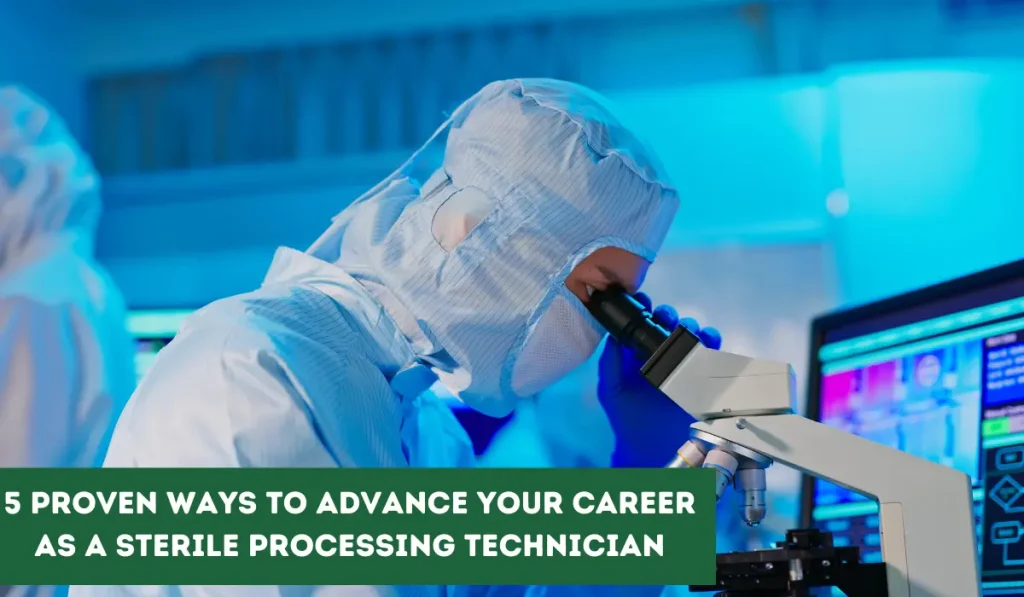Career Advancement Tips for Sterile Processing Technicians
3 min read

Sterile Processing Technicians (SPTs) play a critical role in hospitals and healthcare facilities by ensuring that surgical instruments and equipment are properly cleaned, sterilized, and prepared for use. While the job is essential, many SPTs may wonder about the opportunities for career advancement within this field.
Fortunately, there are multiple ways to grow and advance as an SPT, from obtaining further education and certifications to exploring leadership and specialized roles. In this article, we will explore the different career paths and opportunities for advancement for SPTs.
Education is one of the most important steps for any SPT looking to advance in their career. While some SPTs begin their journey with vocational training, obtaining an associate’s degree in sterile processing or a related field can open up more opportunities for growth. Formal education equips SPTs with the necessary knowledge and skills to excel in their role.
Additionally, certifications can significantly enhance career prospects. Some of the most recognized certifications in the field include:
Certifications show a commitment to the profession and can lead to higher-paying positions and greater responsibilities.
Experience plays a crucial role in career advancement for SPTs. The more hands-on experience an SPT has, the better equipped they are to take on more complex tasks and roles. As SPTs gain experience, they should seek opportunities for specialized training or rotations that expose them to different aspects of the sterile processing field.
Staying updated on industry trends and best practices is also key to professional growth. Continuous learning and adapting to new technologies in sterile processing can help SPTs stand out and demonstrate their value to employers.
For those interested in moving beyond the technician role, there are opportunities to take on leadership positions within sterile processing departments. Leadership roles such as supervisor or manager involve overseeing the work of other technicians, ensuring that all procedures are followed correctly, and maintaining high standards of cleanliness and sterilization.
To qualify for leadership roles, SPTs often need additional training in management and leadership skills. Employers look for individuals who can lead a team, solve problems, and maintain efficient operations in the sterile processing department. Leadership experience can open doors to further advancement in healthcare management.
Sterile processing is a broad field with several specialized areas that SPTs can explore. Specializing in areas such as surgical instrumentation or decontamination can lead to exciting career paths and higher pay. Specialized technicians are often sought after for their expertise in handling delicate instruments or working in high-demand areas.
Choosing a specialization allows SPTs to focus on a particular area of interest and gain advanced skills that set them apart from others in the field. This can also lead to roles in training or teaching other technicians, further expanding career options.
For SPTs interested in broader healthcare roles, transitioning into management positions within healthcare facilities is a viable path. Moving from sterile processing to healthcare management involves developing skills in operations, finance, and personnel management.
Some possible career paths within healthcare management include operations manager, facilities manager, or roles in healthcare administration. These positions require a combination of technical expertise and leadership skills, and often offer opportunities for further growth in larger healthcare organizations.
Sterile Processing Technicians have many opportunities for career advancement, whether through education, certifications, or gaining experience. By seeking out leadership roles, specializing in certain areas, or transitioning into healthcare management, SPTs can continue to grow and develop professionally. Continuous learning and professional development are key to unlocking these opportunities and building a rewarding career in sterile processing.